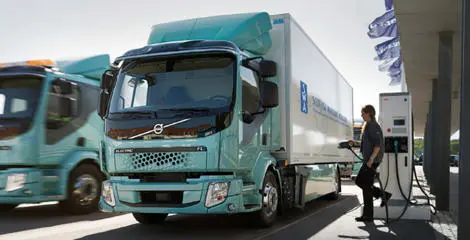Heriot-Watt leads the charge in sustainable electronics through REACT initiative

Heriot-Watt University is proud to play a pivotal role in the new Responsible Electronics and Circular Technologies (REACT) Centre, a £5.5 million initiative funded by UK Research and Innovation (UKRI) that will position Scotland's Central Belt as a global leader in sustainable electronics.
Based at Edinburgh’s newly opened Futures Institute, the Centre aims to drive practical, sustainable solutions that address both economic and environmental challenges, especially for housing that accommodates some of the UK’s lowest earners, including public sector and key workers. These groups often spend a disproportionate amount of their income on energy bills and face health issues due to cold, damp housing, highlighting the need for innovation in affordable, energy-efficient solutions.
REACT brings together expertise from Heriot-Watt University, the University of Glasgow, the University of Edinburgh, and the Compound Semiconductor Catapult, marking a major step toward a low-carbon, circular economy. The Centre will use Edinburgh and Glasgow as test grounds for sustainable housing innovations, given their high proportion of flats and diverse building stock. Researchers estimate that these areas may require £35 billion in investment for low-carbon retrofitting and construction over the next 25 years to reach net-zero goals.
The REACT Centre will work closely with SMEs across the Central Belt to develop market-led solutions and demonstrators that showcase sustainable practices in electronics and housing.
Among the innovative approaches being explored are net-zero heating systems, sustainable construction methods, and natural insulation materials derived from plants like hemp and sisal, which can be manufactured locally in Scotland to reduce reliance on plastic-based insulation.
The project will also trial low-carbon heating technologies, offering energy-efficient alternatives to traditional boilers and faster installation options compared to heat pumps.
Reflecting on Heriot-Watt’s involvement, Professor Bing Xu, theme lead for Green Business and Finance within the iNetZ+ Global Research Institute for Net Zero and Beyond, shared her vision for REACT’s impact:
Through the REACT initiative, we’re able to leverage our research capabilities and partnerships, translating these into impactful applications that enhance the UK's global standing in sustainable electronics. By aligning academia with industry and policymakers, we’re opening pathways to a more resilient, environmentally responsible future for the sector.
One of REACT’s central goals is to promote a circular economy within the electronics sector by addressing issues like electronic waste and critical material dependencies, including limited resources such as palladium and indium. In partnership with industry and government, the Centre’s findings and recommendations will inform national strategies on retrofitting buildings and scaling up sustainable practices in electronics, laying a foundation for Scotland to emerge as a hub for green technology.
Professor Jeff Kettle from the University of Glasgow, who leads the REACT Centre, emphasised the significance of bringing together world-leading researchers to transform the electronics industry:
"The Centre will unite leading researchers to drive the industry’s transition toward a net-zero economy. Its primary focus will be developing solutions to reduce electronic waste, minimise reliance on critical raw materials, and reduce carbon footprints,”
Additionally, the Centre will prioritise training students in low-carbon retrofitting and sustainable construction through partnerships with colleges and academies, ensuring that future generations are equipped with the skills needed for green economy jobs.
Participation in REACT underscores Heriot-Watt University’s dedication to advancing sustainable solutions that address critical global challenges. As part of the University’s iNetZ+ Global Research Institute for Net Zero and Beyond, REACT aligns with Heriot-Watt’s broader mission to lead in green finance, economic transformation and sustainable innovation.
Professor Peter Cummings, academic co-lead for Heriot-Watt’s iNetZ+ Global Research Institute for Net Zero and Beyond, highlighted the transformative potential of REACT within the wider context of the University’s mission for sustainable impact:
“The REACT Centre exemplifies our commitment to developing sustainable solutions that are both practical and far-reaching. Through interdisciplinary collaboration and targeted research, REACT is building a foundation for sustainable progress that addresses the complex environmental and economic needs of our communities. By aligning with the goals of iNetZ+, REACT supports a cohesive strategy for achieving net-zero targets, and its work serves as a model for creating resilient, eco-conscious innovations that can be adopted on a global scale.”
This collaborative project not only strengthens Scotland’s role in sustainable electronics and housing but also provides a framework for integrating environmental responsibility with economic resilience. By driving impactful research and practical solutions, REACT is poised to shape Scotland’s future and set a global standard for sustainability in technology and infrastructure.
For more information on iNetZ+ or to collaborate with Heriot-Watt University, please get in touch with the Global Research Innovation Discovery (GRID) team via GRID@hw.ac.uk
Contact
Scott Holmes
Related content

Scotland’s net zero truck fleets need charging points on busy freight routes, report finds
A Heriot-Watt report on vehicle charging points for truck fleets in Scotland, Towards Zero Emission HGV Infrastructure in Scotland, is published today by Transport Scotland.

Scientists bridge the 'valley of death' in carbon capture technologies
A major obstacle for net zero technologies in combatting climate change is bridging the gap between fundamental research and its application in the real world.

Climate change research shapes the future of credit risk modelling and financial policy
Professor Pati Klusak's work centres on climate change, nature loss and adjusted credit ratings. Her research shapes financial policy and sustainability in finance.